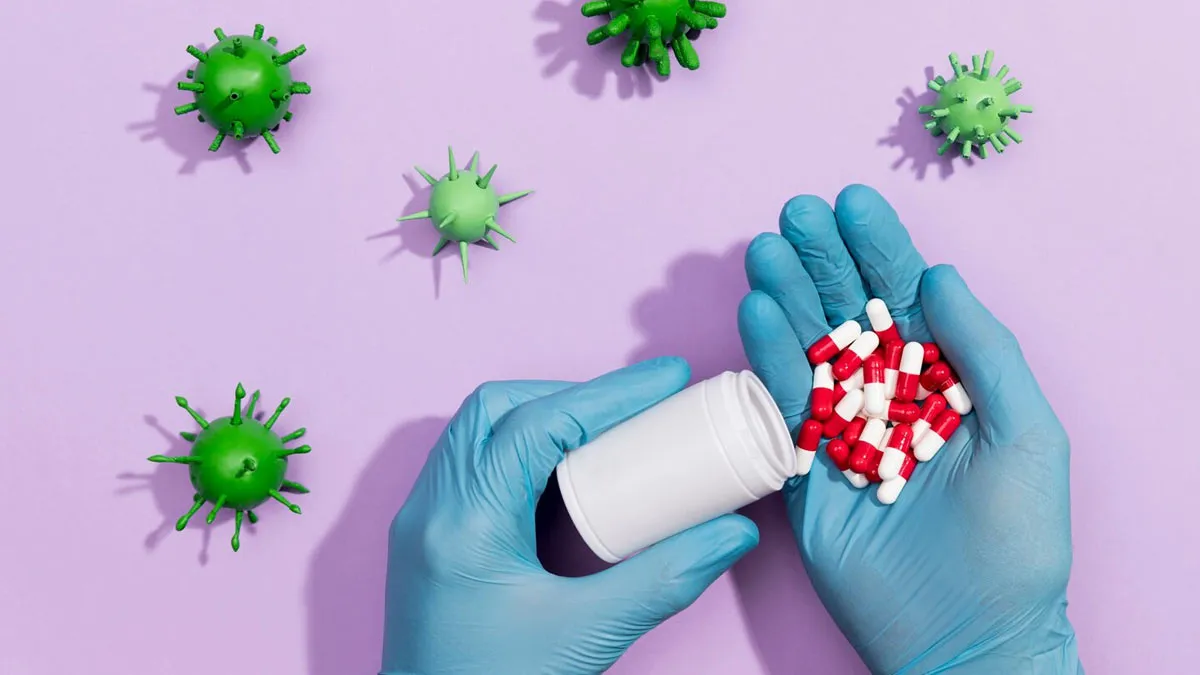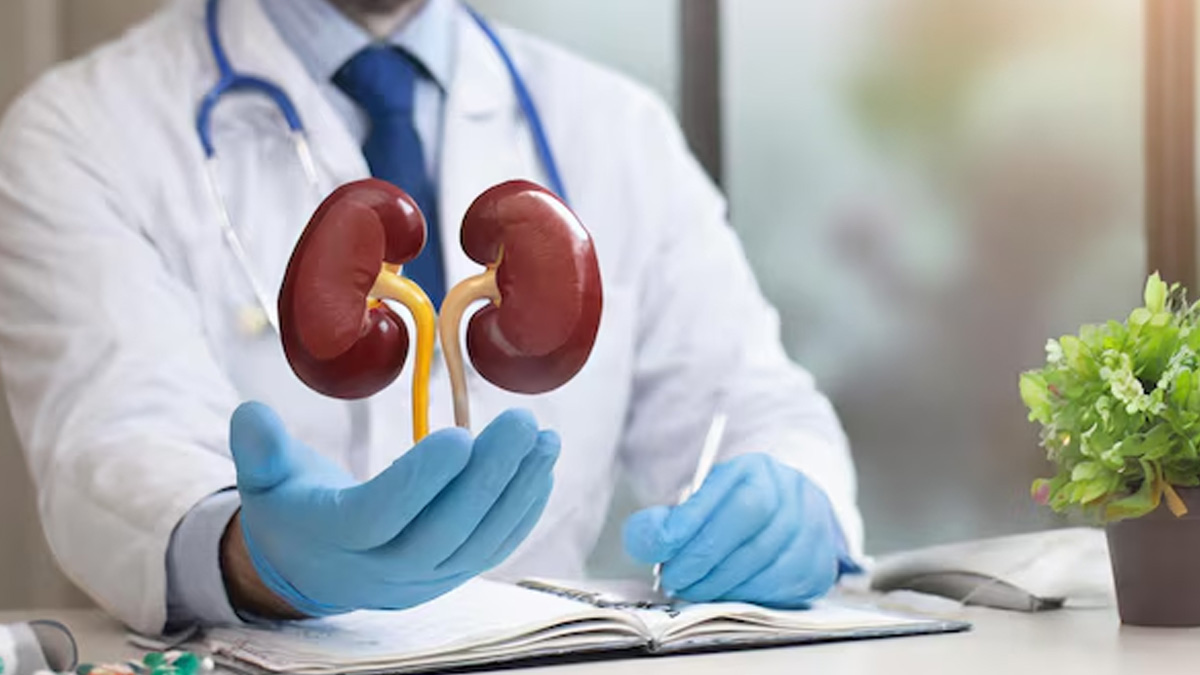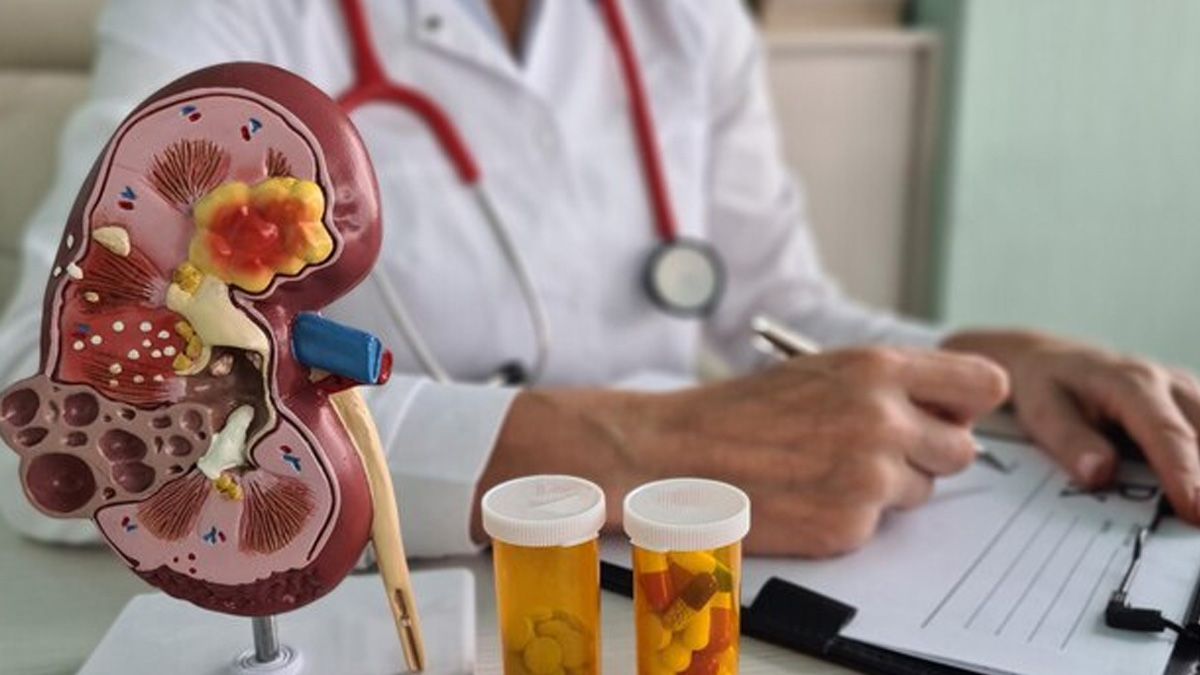
A kidney infection, also known as pyelonephritis, is a type of Urinary Tract Infection (UTI) caused by bacteria or viruses. Bacteria, particularly E. coli, are the most common cause, travelling from the bladder to the kidneys. While it may seem harmless, a kidney infection often needs prompt medical treatment. According to Dr Saurabh Khiste, Consultant Nephrologist, Manipal Hospital Baner, Pune, untreated or poorly managed kidney infections can cause permanent kidney damage.
Table of Content:-
While antibiotics are the first-line treatment for kidney infections, sometimes, they do not work as effectively, which can lead to further complications. Dr Khiste explains the reason behind it and discusses ways to tackle the problem.
Also Read: The Gut Health Crisis: Are Antibiotics and Meds Doing More Harm Than Good?
Role Of Antibiotics In Treating Kidney Infection

Antibiotics are the primary treatment for kidney infections, as they help to eliminate the bacteria causing the infection.
The specific antibiotic, dosage, and duration of treatment are determined by factors like the severity of the infection, the type of bacteria causing it, and the patient's overall health.
"In most cases, the treatment starts with an oral medication, but if a person has a severe infection, they may require intravenous antibiotics in a hospital," says Dr Khiste, emphasising that the sooner people are treated and the more appropriate the antibiotics, the more effective they will be at controlling the infection, eliminating the symptoms, and preventing it from spreading to the blood or other organs.
It is important to complete a full course of the antibiotics to prevent recurrence or complications.
When Does A Kidney Infection Not Respond To Antibiotics?

According to Dr Khiste, a kidney infection might not respond to antibiotics if the germs are resistant to the medication. This is also known as antibiotic resistance, which was responsible for an estimated 10.27 lakh global deaths in 2019 and contributed to 40.95 lakh deaths, as per the World Health Organization (WHO).
"Ineffectiveness can be further restricted by inadequate dosage, insufficient treatment, or inadequate drug absorption," he further adds, sharing that complete bacterial clearance can occasionally be impeded by an underlying blockage, such as kidney stones, structural problems, or an enlarged prostate.
Rarely, uncommon organisms that are not treated by common antibiotics may be the source of the infection. For treatment and rehabilitation to be successful, these elements must be recognised and addressed.
Symptoms Of A Worsening Kidney Infection
If you see the following signs, your kidney infection may be getting worse:
- High fever
- Severe flank pain or back pain
- Increasing fatigue
- Worsening nausea or vomiting
- Cloudy or foul-smelling urine
- Visible blood in urine
- Decreased urine output
Additionally, if the infection spreads to the blood, you may see other symptoms like a very rapid heartbeat, confusion, or low blood pressure. This indicates sepsis (a medical emergency bad enough to need immediate medical help). If any symptoms progress during your infection despite treatment, you need to see a doctor immediately to prevent serious complications and potentially salvage kidney function.
Also Read: Are You On Antibiotics? Here's How To Help Your Gut Recover From The Medication
What Treatment Approach Is Necessary For Stubborn Kidney Infections?

“If kidney infections do not clear up with the regular treatment, a hospital stay for intravenous antibiotics that target the bacteria identified by cultures can be necessary for stubborn kidney infections,” Dr Khiste shares.
He adds that doctors may ask patients to get imaging tests, like CT or ultrasound, to find any obstructions, abscesses, or anomalies. “If we find an impediment like a kidney stone, for instance, we could have to remove the entire stone or reshape it. Draining contaminated liquids is sometimes necessary.”
“To guarantee the treatment is successful and problems are prevented, we will continue to constantly monitor kidney function and overall health,” he concludes.
Conclusion
Kidney infections are manageable with antibiotics. However, sometimes, the infection does not respond well to the medications, leading to further complications and requiring a more advanced treatment approach. Consulting a doctor and understanding the cause behind it can help treat the condition more effectively. It is crucial that you do not ignore noticeable symptoms and take prompt medical action.
Also watch this video
How we keep this article up to date:
We work with experts and keep a close eye on the latest in health and wellness. Whenever there is a new research or helpful information, we update our articles with accurate and useful advice.
Current Version
